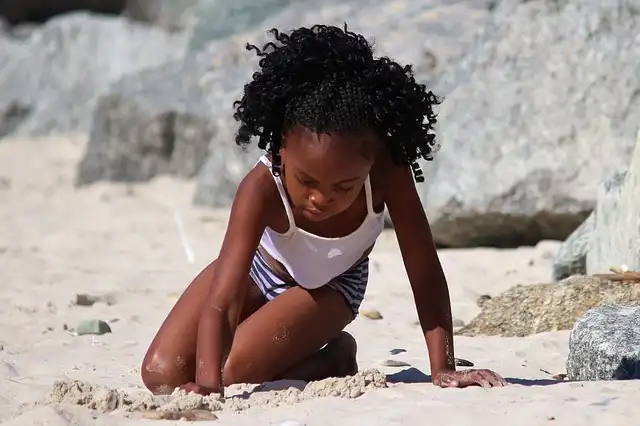Black AIDS Institute: Fighting HIV Disparities in Black Communities

The Black AIDS Institute combats HIV disparities in Black communities through outreach, education, and advocacy, despite funding cuts. They address stigma and distrust, ensuring access to care. Focus: Black health.
Proctor added: “It type of assists with the community to see that despite the fact that they’re doing these things and they’re removing these programs, the Black AIDS Institute is still out right here fighting for us. We’re discovering workarounds and loopholes. They close the door, we’re opening a window, and we’re still finding a method to get the work done.”.
“There’s a prominent misunderstanding that HIV isn’t a problem any longer or it’s in control, specifically considering that now, we reside in a day where HIV isn’t always a death sentence anymore like it utilized to be back in the day,” stated Justin Proctor. As BAI’s elderly prevention supervisor, he’s heavily associated with the group’s testing and other outreach tasks. “A large part of what we do is simply advising individuals that not only is it not gone, however it influences our individuals majorly.”.
HIV’s Impact on Black Communities Today
As the only “distinctively and unapologetically Black HIV believe and do container in America,” the organization proceeds to be on the front lines– whether that’s on the schools of traditionally Black universities and universities, at ballroom area gatherings, or at occasions like Essence Feast and the Frying Pan African Movie Festival. Black women were diagnosed extra often than other ladies, as were Black males as compared to non-Black males. Within trans areas, Black trans ladies and Black trans guys take on the highest possible portion of medical diagnoses among racial-ethnic teams, as well, according to 2019 CDC data. There is the basic distrust some individuals in Black areas have of the wellness care system at big, thinking about generations of clinical physical violence and exploitation enacted upon Black individuals.
“I believe what we did, accidentally, is we mosted likely to the largest disease-burdened team, which were guys who have sex with men– and that’s fine, that’s what you’re meant to do,” she claimed. “Nonetheless, we never then returned and said, ‘It impacts everybody. We are done in it together.'”.
“Sometimes we see individuals who have had a bad experience with HIV/AIDS [education and learning or treatment],” said Lauren Grayson, BAI’s area mobilization and HBCU expert. “Often it’s stigma that’s out here. We see people who aren’t ready to involve with us, and that’s fine, yet I’m mosting likely to hand you a flyer anyway and have a blessed day.”.
Addressing Stigma and Distrust in Healthcare
“We were the canary in the mine,” she said. “We are the mobilizer. We were the ones that carried the weight throughout a time when it was uncertain.” Though the path forward today may look a little various– “radically partnering intergenerationally and multi-generationally, being attached in a message that says HIV education and care is for every person, and testing the capitalistic side of pharma,” she included– the objective is the same.
“A great deal of the moments when we most likely to these points, people think I’m gay or they believe I have HIV or both, and they’re very shocked to learn when I’m not,” he claimed. “And despite the fact that feeling of preconception and the assumption was there, once they find out, it’s the opposite. Their inquisitiveness opens, and then they resemble, ‘Well, dang, maybe I need to focus on this much more.'”.
Black women were identified much more commonly than various other females, as were Black men as compared to non-Black guys. Within trans areas, Black trans females and Black trans men bear the highest percent of medical diagnoses among racial-ethnic groups, as well, according to 2019 CDC information.
After that there is the general question some people in Black neighborhoods have of the healthcare system at large, taking into consideration generations of clinical physical violence and exploitation enacted upon Black people. That distrust is certainly magnified currently as the Trump administration considerably modifies the U.S.’s international and nationwide HIV response by reducing required funding– to the song of millions– that sustains research, area outreach, testing, therapy and more worldwide. Domestically, these cuts have caused neighborhood wellness divisions and community groups to end some of the treatment they formerly supplied.
Grazell Howard is a living personification of the Black AIDS Institute’s motto of “Our Individuals. Our Problem. Our Service.” Clear-eyed about the failings of an activity to absolutely address the demands of those most impacted by the infection, her analysis of this minute in which Black and brownish communities are still disproportionately influenced by HIV is basic.
The Black AIDS Institute’s Mission
Clear-eyed concerning the failures of an activity to genuinely address the needs of those most affected by the virus, her analysis of this moment in which Black and brownish areas are still disproportionately affected by HIV is straightforward.
BAI was started as a nonprofit in 1999 by introducing activistPhill Wilson to activate and educate Black American neighborhoods about HIV/AIDS therapy and treatment. As the only “distinctly and unapologetically Black HIV believe and do storage tank in America,” the organization proceeds to be on the front lines– whether that’s on the schools of traditionally Black colleges and colleges, at ballroom neighborhood events, or at occasions like Essence Feast and the Frying Pan African Movie Event.
As the Black AIDS Institute, or BAI, commemorates over 25 years of service to the area, Howard’s vision as managing supervisor and chair of the organization’s Board has to do with fulfilling the entire Black neighborhood where it is currently. And though recurring, politically motivated rollbacks in funding and other assistance for this important job might complicate things, she’s unflinching by the trip in advance.
1 Black AIDS Institute2 Black communities
3 community outreach
4 healthcare access
5 HIV disparities
6 HIV prevention
« UNC Targeted: LGBTQ+ Inclusive Courses Under ScrutinyKamala Harris: No Run for Governor, Future Plans & Politics »
